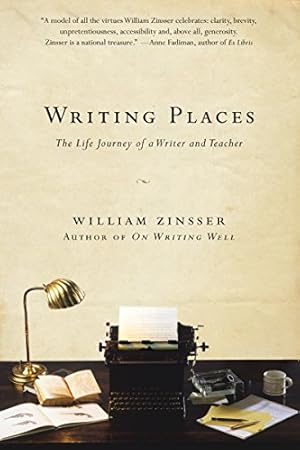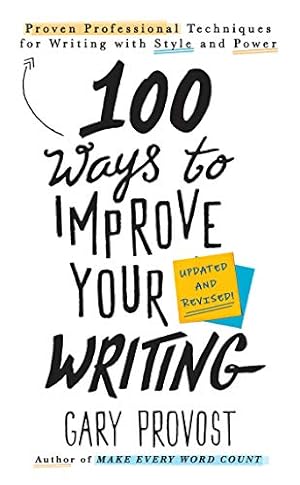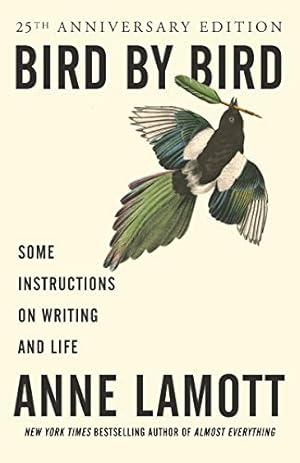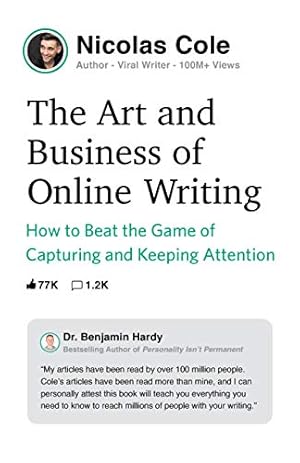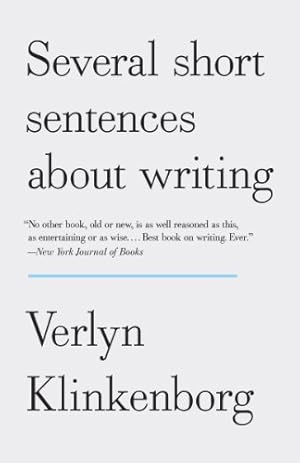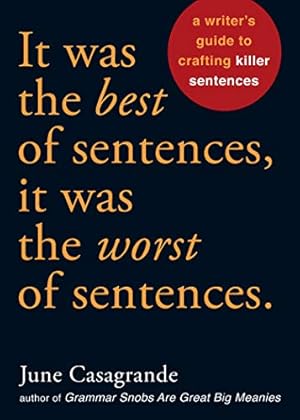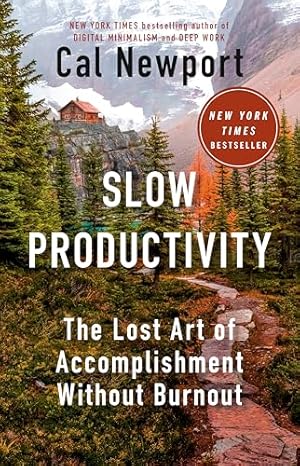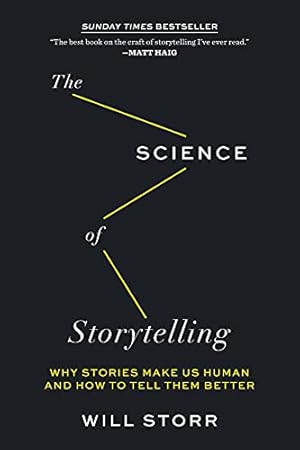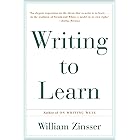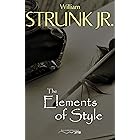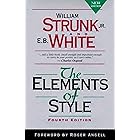Your Memberships & Subscriptions

Download the free Kindle app and start reading Kindle books instantly on your smartphone, tablet, or computer - no Kindle device required.
Read instantly on your browser with Kindle for Web.
Using your mobile phone camera - scan the code below and download the Kindle app.

Image Unavailable
Color:
-

-
-
- To view this video download Flash Player
-

-
 VIDEO
VIDEO -



 Audible sample
Audible sample Follow the author
OK
On Writing Well, 30th Anniversary Edition: An Informal Guide to Writing Nonfiction 30th Anniversary ed. Edition, Kindle Edition
"On Writing Well is a bible for a generation of writers looking for clues to clean, compelling prose." —New York Times
A beloved classic and the definitive volume on the art of writing nonfiction
On Writing Well, which grew out of a course that William Zinsser taught at Yale, has been praised for its sound advice, its clarity, and for the warmth of its style. It is a book for anybody who wants to learn how to write or who needs to do some writing to get through the day, as almost everybody does. Whether you want to write about people or places, science and technology, business, sports, the arts, or about yourself in the increasingly popular memoir genre, On Writing Well offers you both fundamental principles as well as the insights of a distinguished practitioner. With over a million copies in print, this volume has stood the test of time and remains a valued resource for writers and would-be writers.
- ISBN-13978-0060891541
- Edition30th Anniversary ed.
- PublisherHarper Perennial
- Publication dateSeptember 11, 2012
- LanguageEnglish
- File size2559 KB
Kindle E-Readers
- Kindle Paperwhite
- All New Kindle E-reader
- Kindle Paperwhite (5th Generation)
- Kindle (10th Generation)
- Kindle Voyage
- Kindle Oasis
- Kindle Paperwhite (11th Generation)
- All New Kindle E-reader (11th Generation)
- Kindle Paperwhite (10th Generation)
- All new Kindle paperwhite
- Kindle Scribe (1st Generation)
- Kindle Oasis (9th Generation)
- Kindle Oasis (10th Generation)
- Kindle Touch
- Kindle
Fire Tablets
Customers also bought or read
- Writing to Learn: How to Write - and Think - Clearly About Any Subject at All
 Kindle Edition$5.49$5.49
Kindle Edition$5.49$5.49 - The Sense of Style: The Thinking Person's Guide to Writing in the 21st CenturyEditors' pick
 Kindle Edition$12.99$12.99
Kindle Edition$12.99$12.99 - Write Useful Books: A modern approach to designing and refining recommendable nonfiction
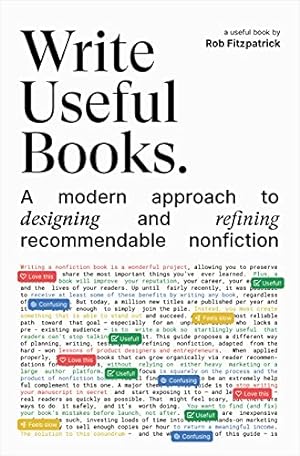 Kindle Edition$9.99$9.99
Kindle Edition$9.99$9.99 - The Art and Craft of Feature Writing: Based on The Wall Street Journal Guide
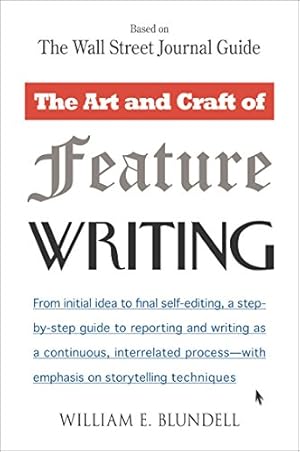 Kindle Edition$13.99$13.99
Kindle Edition$13.99$13.99 - Writing That Works, 3rd Edition: How to Communicate Effectively in Business
 Kindle Edition$13.49$13.49
Kindle Edition$13.49$13.49 - On Revision: The Only Writing That Counts (Chicago Guides to Writing, Editing, and Publishing)
 Kindle Edition$2.99$2.99
Kindle Edition$2.99$2.99 - Dreyer's English: An Utterly Correct Guide to Clarity and StyleEditors' pick
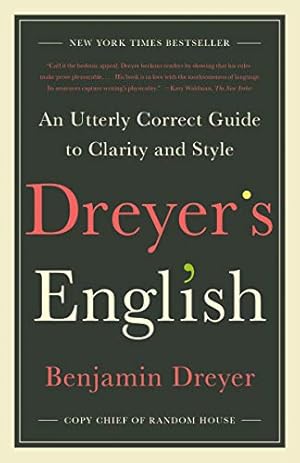 Kindle Edition$6.99$6.99
Kindle Edition$6.99$6.99
Customers who bought this item also bought
 But the secret of good writing is to strip every sentence to its cleanest components.Highlighted by 12,254 Kindle readers
But the secret of good writing is to strip every sentence to its cleanest components.Highlighted by 12,254 Kindle readers Clear thinking becomes clear writing; one can’t exist without the other.Highlighted by 9,923 Kindle readers
Clear thinking becomes clear writing; one can’t exist without the other.Highlighted by 9,923 Kindle readers Writers must therefore constantly ask: what am I trying to say? Surprisingly often they don’t know.Highlighted by 8,759 Kindle readers
Writers must therefore constantly ask: what am I trying to say? Surprisingly often they don’t know.Highlighted by 8,759 Kindle readers
Editorial Reviews
Review
“On Writing Well belongs on any shelf of serious reference works for writers.” — New York Times
“Not since The Elements of Style has there been a guide to writing as well presented and readable as this one. A love and respect for the language is evident on every page.” — Library Journal
About the Author
William Zinsser is a writer, editor and teacher. He began his career with the New York Herald Tribune and has been a longtime contributor to leading magazines. His 17 books include Writing to Learn; Mitchell & Ruff; Spring Training; American Places; Easy to Remember: The Great American Songwriters and Their Songs; and most recently Writing About Your Life. During the 1970s he taught writing at Yale, where he was master of Branford College. He now teaches at the New School, in New York, his hometown, and at the Columbia University Graduate School of Journalism.
Excerpt. © Reprinted by permission. All rights reserved.
On Writing Well, 30th Anniversary Edition
The Classic Guide to Writing NonfictionBy William ZinsserHarperCollins Publishers, Inc.
Copyright ©2006 William ZinsserAll right reserved.
ISBN: 0060891548
Chapter One
The Transaction
A school in Connecticut once held "a day devoted to the arts," and I was asked if I would come and talk about writing as a vocation. When I arrived I found that a second speaker had been invited -- Dr. Brock (as I'll call him), a surgeon who had recently begun to write and had sold some stories to magazines. He was going to talk about writing as an avocation. That made us a panel, and we sat down to face a crowd of students and teachers and parents, all eager to learn the secrets of our glamorous work.
Dr. Brock was dressed in a bright red jacket, looking vaguely bohemian, as authors are supposed to look, and the first question went to him. What was it like to be a writer?
He said it was tremendous fun. Coming home from an arduous day at the hospital, he would go straight to his yellow pad and write his tensions away. The words just flowed. It was easy. I then said that writing wasn't easy and wasn't fun. It was hard and lonely, and the words seldom just flowed.
Next Dr. Brock was asked if it was important to rewrite. Absolutely not, he said. "Let it all hang out," he told us, and whatever form the sentences take will reflect the writer at his most natural. I then said that rewriting is the essence of writing. I pointed out that professional writers rewrite their sentences over and over and then rewrite what they have rewritten.
"What do you do on days when it isn't going well?" Dr. Brock was asked. He said he just stopped writing and put the work aside for a day when it would go better. I then said that the professional writer must establish a daily schedule and stick to it. I said that writing is a craft, not an art, and that the man who runs away from his craft because he lacks inspiration is fooling himself. He is also going broke.
"What if you're feeling depressed or unhappy?" a student asked. "Won't that affect your writing?"
Probably it will, Dr. Brock replied. Go fishing. Take a walk. Probably it won't, I said. If your job is to write every day, you learn to do it like any other job.
A student asked if we found it useful to circulate in the literary world. Dr. Brock said he was greatly enjoying his new life as a man of letters, and he told several stories of being taken to lunch by his publisher and his agent at Manhattan restaurants where writers and editors gather. I said that professional writers are solitary drudges who seldom see other writers.
"Do you put symbolism in your writing?" a student asked me.
"Not if I can help it," I replied. I have an unbroken record of missing the deeper meaning in any story, play or movie, and as for dance and mime, I have never had any idea of what is being conveyed.
"I love symbols!" Dr. Brock exclaimed, and he described with gusto the joys of weaving them through his work.
So the morning went, and it was a revelation to all of us. At the end Dr. Brock told me he was enormously interested in my answers -- it had never occurred to him that writing could be hard. I told him I was just as interested in his answers -- it had never occurred to me that writing could be easy. Maybe I should take up surgery on the side.
As for the students, anyone might think we left them bewildered. But in fact we gave them a broader glimpse of the writing process than if only one of us had talked. For there isn't any "right" way to do such personal work. There are all kinds of writers and all kinds of methods, and any method that helps you to say what you want to say is the right method for you. Some people write by day, others by night. Some people need silence, others turn on the radio. Some write by hand, some by word processor, some by talking into a tape recorder. Some people write their first draft in one long burst and then revise; others can't write the second paragraph until they have fiddled endlessly with the first.
But all of them are vulnerable and all of them are tense. They are driven by a compulsion to put some part of themselves on paper, and yet they don't just write what comes naturally. They sit down to commit an act of literature, and the self who emerges on paper is far stiffer than the person who sat down to write. The problem is to find the real man or woman behind the tension.
Ultimately the product that any writer has to sell is not the subject being written about, but who he or she is. I often find myself reading with interest about a topic I never thought would interest me -- some scientific quest, perhaps. What holds me is the enthusiasm of the writer for his field. How was he drawn into it? What emotional baggage did he bring along? How did it change his life? It's not necessary to want to spend a year alone at Walden Pond to become involved with a writer who did.
This is the personal transaction that's at the heart of good nonfiction writing. Out of it come two of the most important qualities that this book will go in search of humanity and warmth. Good writing has an aliveness that keeps the reader reading from one paragraph to the next, and it's not a question of gimmicks to "personalize" the author. It's a question of using the English language in a way that it will achieve the greatest clarity and strength.
Can such principles be taught? Maybe not. But most of them can be learned.
Continues...
Excerpted from On Writing Well, 30th Anniversary Editionby William Zinsser Copyright ©2006 by William Zinsser. Excerpted by permission.
All rights reserved. No part of this excerpt may be reproduced or reprinted without permission in writing from the publisher.
Excerpts are provided by Dial-A-Book Inc. solely for the personal use of visitors to this web site.
Product details
- ASIN : B0090RVGW0
- Publisher : Harper Perennial; 30th Anniversary ed. edition (September 11, 2012)
- Publication date : September 11, 2012
- Language : English
- File size : 2559 KB
- Text-to-Speech : Enabled
- Screen Reader : Supported
- Enhanced typesetting : Enabled
- X-Ray : Not Enabled
- Word Wise : Enabled
- Print length : 335 pages
- Page numbers source ISBN : B007YTSYN0
- Best Sellers Rank: #15,037 in Kindle Store (See Top 100 in Kindle Store)
- #2 in Business Encyclopedias
- #2 in Authorship
- #3 in Writing Skill Reference (Kindle Store)
- Customer Reviews:
About the author

William Zinsser, a writer, editor, and teacher, is a fourth-generation New Yorker, born in 1922. His 18 books, which range in subject from music to baseball to American travel, include several widely read books about writing.
On Writing Well: The Classic Guide to Writing Nonfiction, first published in 1976, has sold almost 1.5 million copies to three generations of writers, editors, journalists, teachers and students.
Writing to Learn which uses examples of good writing in science, medicine and technology to demonstrate that writing is a powerful component of learning in every subject.
Writing Places, a memoir recalling the enjoyment and gratitude the places where William Zinsser has done his writing and his teaching and the unusual people he encountered on that life journey.
Mr. Zinsser began his career in 1946 at the New York Herald Tribune, where he was a writer, editor, and critic. In 1959 he left to become a freelance writer and has since written regularly for leading magazines. From 1968 to 1972 he was a columnist for Life. During the 1970s he was at Yale, where, besides teaching nonfiction writing and humor writing, he was master of Branford College. In 1979 he returned to New York and was a senior editor at the Book-of-the-Month Club until 1987, when he went back to freelance writing. He teaches at the New School and at Columbia University Graduate School of Journalism. He is an adviser on writing to schools, colleges, and other organizations. He holds honorary degrees from Wesleyan University, Rollins College, and the University of Southern Indian and is a Literary Lion of the New York Public Library.
William Zinsser's other books include Mitchell & Ruff, a profile of jazz musicians Dwike Mitchell and Willie Ruff; American Places, a pilgrimage to 16 iconic American sites; Spring Training, about the spring training camp of the Pittsburgh Pirates in 1988; and Easy to Remember: The Great American Songwriters and Their Songs; and he is the Inventing the Truth: The Art and Craft of Memoir. A jazz pianist and songwriter, he wrote a musical revue, What's the Point, which was performed off Broadway in 2003.
Mr. Zinsser lives in his home town with his wife, the educator and historian Caroline Zinsser. They have two children, Amy Zinsser, a business executive, and John Zinsser, a painter and teacher.
Customer reviews
Customer Reviews, including Product Star Ratings help customers to learn more about the product and decide whether it is the right product for them.
To calculate the overall star rating and percentage breakdown by star, we don’t use a simple average. Instead, our system considers things like how recent a review is and if the reviewer bought the item on Amazon. It also analyzed reviews to verify trustworthiness.
Learn more how customers reviews work on AmazonCustomers say
Customers find the book provides simple yet profound writing insights. They describe it as an enjoyable and practical read with humorous stories. Readers appreciate the author's style and humor, describing it as a new and colorful style that makes the content worth the effort to look at. The book is considered a great buy and worth the price.
AI-generated from the text of customer reviews
Customers find the book provides simple yet profound writing insights. It covers various aspects of writing, from revision to writing with confidence. Many find it helpful for scientific writing, memoir writing, and non-fiction writing. The chapters are easy to read and fast-paced, making the information clear and easy to understand.
"...There are too many good points On Writing Well to summarize in a few short paragraphs, so I want to break them down into the four parts of the book..." Read more
"...The chapters cover various aspects of writing, from the importance of revision to understanding the structures of different types of nonfiction...." Read more
"...a style so that reader can recognize you as someone special; write for yourself; choose simple and proper words; and lastly, get into the habit of..." Read more
"...What I particularly enjoyed is the plethora of examples and excerpts through which the author presented the concepts...." Read more
Customers find the book an enjoyable and useful read. They appreciate its clear advice, warmth, and readable style that makes the subject matter enjoyable.
"I read On Writing Well by William Zinsser twice. I loved this book. sOn Writing Well embodies what excellent writing should be...." Read more
"...experiences, which not only illustrate his points but also keep the reader engaged...." Read more
"...In any of these forms, it suggests writing with clarity, simplicity, brevity and humanity...." Read more
"...(The Sound of Your Voice, Enjoyment, Fear and Confidence, The Tyranny of the Final Product, A Writer's..." Read more
Customers find the book informative and useful. It provides them with practical advice and insights on writing. They find it a good guide to help them become better writers. The author is described as persuasive and thoughtful about the craft of writing.
"...I also believe there is a spiritual battle waged in Christian writing. The evil one does not want God's glory to be revealed in human creativity...." Read more
"...Zinsser’s insights into the writing process are both practical and motivational, helping writers to overcome common challenges like self-doubt and..." Read more
"...This book has 25 Chapters, organized into four parts: Principles, Methods, Forms and Attitudes...." Read more
"...This made the book very practical...." Read more
Customers enjoy the book's humor. They find it witty and engaging, with humorous stories that make them laugh on almost every page. The author provides practical tips and helpful examples.
"...In the end, this book suggests adding humor and surprise to writing, the question is how to be humorous in writing. The recipe is not given." Read more
"...writing, science and technology, sports writing, reviewing, and humor. There's something for everyone. I do realize how badly I write...." Read more
"...One chapter covers humor writing, with liberal nods to Garrison Keillor, and Gary Trudeau. And he hit a home run...." Read more
"...He has both wit and charm. He supplies many funny stories. He makes fun of pompous academics and pedagogues. He is empathetic and warm...." Read more
Customers appreciate the book's style. They find it simple, with short chapters and tips, colorful descriptions, and anecdotes. The author's voice is described as elegant and persuasive. Readers also mention that the style is conversational and easy to follow.
"...Strip away the sports jargon and write with active verbs and colorful adjectives...." Read more
"...of writing which includes: Write simple, clutter free sentences; adopt a style so that reader can recognize you as someone special; write for..." Read more
"...The chief strength of the book is Mr. Zinsser's voice--he is quietly elegant, and persuasive when he writes about, for instance, Unity..." Read more
"...He advocates the sparcity of writing. Remove all excess words. Clean, crisp, clear. Prune ruthlessly...." Read more
Customers appreciate the book's value for money. They say it looks and feels new and is a great buy.
"...be the essence of the book so my take on it final thoughts excellent book worth the value but unless you know these points I'm making here you may..." Read more
"Condition of book was described accurately, competitive price, quick delivery." Read more
"I received two copies of a book today. One is new and worth the price. Looks and feels new...." Read more
"...But the first half of the book is well worth the time and cost. I will be rereading shortly." Read more
Customers enjoy the book's vocabulary. They find it an enjoyable guide to writing with clear syntax of nouns, pronouns, verbs, and adverbs. The author has a genuine love of words and teaches in a humanizing way. They appreciate the grammar principles and life lessons included in the book. The quote section on writers' talking shop is also appreciated.
"...Part two shows the method of writing. This part teaches you that unity of pronoun, verbs, and mood are the anchors of good writing...." Read more
"...(3rd Edition)]], which is more nuts-and-bolts, and has a delightful quote section on writers talking shop...." Read more
"...The advice on simplicity of expression, on rewriting, on clean verbiage, on diligence, on being true to one's purpose is both practical and worthy...." Read more
"...the most enjoyable dissemination of the syntax of nouns, pronouns, verbs, and adverbs with a digestible amount of clever cliché to string the reader..." Read more
Customers find the book's pacing engaging. They appreciate the author's empathy and warmth, saying writing is hard. The book provides encouragement and examples without being pushy. Readers mention it helped them conquer their fears and feel confident when writing.
"...forms, it suggests writing with clarity, simplicity, brevity and humanity...." Read more
"...(The Sound of Your Voice, Enjoyment, Fear and Confidence, The Tyranny of the Final Product, A Writer's Decision, Write as..." Read more
"...various forms of nonfiction are explored at length and [4] Attitudes within writing, which is self explanatory...." Read more
"...He makes fun of pompous academics and pedagogues. He is empathetic and warm. His instructions are personal, not distant or abstract...." Read more
Reviews with images
The second time I bought this book, have to leave a review with 5 stars
Top reviews from the United States
There was a problem filtering reviews right now. Please try again later.
- Reviewed in the United States on June 29, 2013I read On Writing Well by William Zinsser twice. I loved this book. sOn Writing Well embodies what excellent writing should be. At first I thought the book would be a dull "how to write" book, much like a cookbook, without a lot of creativity. Instead, On Writing Well has depth and soul. It challenges me to ask, what can I achieve for the glory of God if I implement these nuggets of wisdom?
On Writing Well gives me a high standard to emulate and debunks many myths perpetrated by people I consider more knowledgeable than myself. This book is a gift to anyone who takes writing seriously.
I also believe there is a spiritual battle waged in Christian writing. The evil one does not want God's glory to be revealed in human creativity. If he can persuade Christian writers through mediocrity and deception that publishing articles or books is the ultimate goal without a passion for truth, beauty, and redemption, our writing will be compromised. We will sacrifice our best-God's creativity--for a cheap counterfeit. As Zinsser states so well, we need role models who exhibit good writing that we can copy to help us develop our own style.
I also feel "normal" now knowing I am not "crazy" with my compulsion to rewrite things over and over as I fidget for the right construction. I take comfort in knowing at least Zinsser does the same thing.
There are too many good points On Writing Well to summarize in a few short paragraphs, so I want to break them down into the four parts of the book as Zinsser presented them.
Part I Principles
All these principles would apply equally to fiction and nonfiction.
1. Good writing must exhibit humanity and warmth. A writer's product is himself, not the subject that he is writing about.
2. Write clearly and eliminate all clutter.
3. Be yourself on paper as you are in person.
4. Write the way that is most natural to you.
5. Write to please yourself--I like to think I am writing to please God. To paraphrase from the Bible, whatever I do, do it as if I am doing it unto the Lord, and give Him the glory. That means the reader deserves the best I have to offer.
6. Writing is art through imitation.
7. Avoid journalese and cheap words--the world has enough of them already (I know because I caption them every day). Instead, surprise the reader with the rhythm and cadence of verbs and nouns that express vitality and beauty in unexpected ways.
8. Respect the English language and write correctly--it will show you care about the reader and respect his intelligence.
Part II Methods
All these principles would apply equally to fiction and nonfiction.
2. Unity ensures orderliness in terms of presentation, pronoun, tense, and mood.
3. Enthusiasm will keep the reader engaged.
4. Leave the reader with one new thought or idea to consider after he finishes your story.
5. Be flexible--let your writing take you where it wants to go. Trust your material.
6. Make your lead so compelling that the reader can't put your book down.
7. Always have more material to draw from than you think you will need.
8. Look for the story in your writing--people love stories.
9. Know when to end (I have read my share of great books that I never finished because I became bored in the waning chapters).
10. Use active and precise verbs and adjectives. Avoid overuse of adverbs.
My translation is, if it sounds like writing, it's a poor substitute. My favorite books are those where I get lost in the story--I have been transported to another world or another time and forget I am reading until something or somebody disturbs me.
11. Omit the "little qualifiers."
In my book Children of Dreams, I did a word search for qualifiers I tend to overuse like "very" and removed them. I also did a search for exclamation points--most of those came out also. The change in overall appearance was stunning.
12. Avoid contractions like "I'd, he'd, and we'd." I don't write these words captioning because I don't like them (they don't exist in my captioning dictionary), so I am glad to know I don't ever need to write them.
13. Don't overstate. I have been turned off by writers who overstated a fact. My translation is, don't insult the reader's intelligence.
14. Don't compare your writing to others. Your only competition is with yourself.
15. If something can't be fixed, take it out. In captioning parlance, when in doubt, take it out. Better not to caption it than to caption it wrong.
16. Keep paragraphs short.
17. Rewrite, rewrite, rewrite.
Part III Forms (Noted for my own edification)
1. Dramatic nonfiction should have no inferring or fabricating, but a condensing of time and events is acceptable to tell the story, raising the craft of writing nonfiction to art.
2. Seize control of style and substance when writing about people and places; take unusual care with details.
3. A memoir covers a short span of time and is not autobiographical. Use sound, smell, touch and rich remembrance to allow the reader to enjoy the journey alongside you.
4. When writing science, write as an ordinary person, sequentially, and never forget the human element is what will make the story come alive.
5. Strip from business writing all the extra "lingo" and write with what Zinsser calls the four articles of faith: Clarity, simplicity, brevity and humanity.
6. Sports writing is rich in opportunity for nonfiction writers--a source of material for social change and social history. Strip away the sports jargon and write with active verbs and colorful adjectives. (This chapter spoke to me personally as it takes months of training to become a competent sports captioner. Because I hope to incorporate sports into my creative writing, I'm glad to know that good sports writing eliminates the junkie lingo that I caption every day).
7. Criticism is a serious intellectual act undertaken by those trained in the area of inquiry. The first qualification should be to love the type of art being critiqued.
8. Humor is the secret ingredient to nonfiction writing that adds zest and joy to truth and life.
Part IV Attitudes
The following would apply to fiction except for 6 through 10. All would apply to nonfiction.
1. Avoid cheap writing, clichés, and breeziness. Develop a style that the reader with recognize as "your voice."
2. Write with sincerity. Your best credential is yourself.
3. Focus on process, not outcome. Zinsser calls it, "The Tyranny of the Final Product."
4. Quest and intention should guide us in our writing. Quest is the search for meaning and intention is what we wish to accomplish--the soul of our writing.
5. Writing is about making decisions, and ultimately, where you wish to take the reader on your journey.
6. Consider the resonance of the words you choose and its emotional impact on the reader.
7. As a nonfiction writer, "You must get on the plane." (I think about the adoption of my two daughters from Nepal and Vietnam. My book Children of Dreams is about their adoptions. If I never got on the plane, I wouldn't have them. Neither would the reader have my book.
8. When writing memoir, choose one point of view to preserve unity; i.e., writing from the viewpoint of the child versus the adult looking back. They are different kinds of writing.
9. Remember, when writing memoir, it's your story. Memoirs should have a redemptive quality--readers won't connect with whining.
10. Organize your memoir through a series of reductions, focusing on the small stories tucked away in memory. The reader will connect because the stories will resonate with universal truth.
11. Strive to write the best you can. Give all of yourself. The reader deserves the best you have to offer.
- Reviewed in the United States on October 30, 2024William Zinsser’s "On Writing Well" is a must-read for anyone looking to improve their nonfiction writing skills. With its clear structure and practical advice, Zinsser emphasizes the importance of simplicity, clarity, and voice in writing.
One of the book’s standout features is its conversational tone, making it accessible and engaging for writers at any level. Zinsser shares personal anecdotes and experiences, which not only illustrate his points but also keep the reader engaged. His emphasis on the writer's unique perspective is refreshing, encouraging writers to find their own voice rather than simply follow trends.
The chapters cover various aspects of writing, from the importance of revision to understanding the structures of different types of nonfiction. Zinsser’s insights into the writing process are both practical and motivational, helping writers to overcome common challenges like self-doubt and writer’s block.
What makes Zinsser’s guide classic is its enduring wisdom. Although written decades ago, the principles laid out in this book remain relevant today in our fast-paced, information-driven world.
Overall, "On Writing Well" is not just a guide; it’s a companion for anyone who wants to write better and convey their message more effectively. Highly recommended for aspiring writers, editors, and anyone who wants to sharpen their writing craft.
- Reviewed in the United States on November 24, 2015I bought this book for my feature writing course.
This book has 25 Chapters, organized into four parts: Principles, Methods, Forms and Attitudes.
The first part focuses on the principles of writing. It provides several guidelines for a craft of writing which includes: Write simple, clutter free sentences; adopt a style so that reader can recognize you as someone special; write for yourself; choose simple and proper words; and lastly, get into the habit of using dictionaries.
Part two shows the method of writing. This part teaches you that unity of pronoun, verbs, and mood are the anchors of good writing. It further instructs readers that, in feature writing, the lead must capture the reader immediately and force him or her to keep reading. In the same way, the end should take readers by surprise. Next, it suggests readers to use active verbs, avoid adverbs and adjectives as much as possible. Lastly, it provides guidelines for proper punctuation.
Part three covers writing about the different form of nonfiction, including writing about people, places, memoirs, science and technology, business writing, sports, arts, humor, etc. In any of these forms, it suggests writing with clarity, simplicity, brevity and humanity. In addition, it calls for using first person, active verbs, and avoiding long words and vague nouns.
The last part imparts knowledge about the attitudes. The sound of your voice should be so relaxed that you hear the author talking to you, which requires strenuous effort and constant refining; crude, corny and verbose are enemies of good writing. Besides, it recommends avoiding cheap slang, shoddy sentences, windy philosophizing, and cliché, the enemy of taste. Next, it inspires its readers to write about subjects that interest them and they care about.
Though the title of the book suggests that it is a guide to writing nonfiction, it is also for all those people who want to know about the craft of writing.
In the end, this book suggests adding humor and surprise to writing, the question is how to be humorous in writing. The recipe is not given.
Top reviews from other countries
 MOHITReviewed in India on October 8, 2024
MOHITReviewed in India on October 8, 20245.0 out of 5 stars Best book 📕
Bhut achi h book h
Full interesting book
 Kindle CustomerReviewed in France on August 5, 2024
Kindle CustomerReviewed in France on August 5, 20245.0 out of 5 stars Excellent book, useful and full of humanity
Really a great book, it's full of good advice and the author comes across as someone you'd love to spend time with.
I bought it for practical reasons (wanting to write better emails at work) and had a great time while reading it.
My advice to potential readers is to read it alongside a non-fiction book you like.
 AnnaReviewed in Germany on January 30, 2024
AnnaReviewed in Germany on January 30, 20245.0 out of 5 stars Helpful for anyone who writes - and in any language.
An entertaining and enlightening book for anyone who wants to improve his or her writing style - and not just for English native speakers but also for people (like me) who usually write in another language. The core criteria of good writing style are convincingly explained and illustrated with just the right number of examples. The practical tips for revising texts makes things easy and motivate you to revise your own texts quickly and effectively It's easy to see the before-and-after effects in your own work immediately.
 vipinReviewed in the United Kingdom on September 24, 2023
vipinReviewed in the United Kingdom on September 24, 20235.0 out of 5 stars A master piece of writing for aspiring writers
Good writing cannot be achieved unless the writer can organise his thoughts, first in his mind, then on paper. Even as I write this review, the lessons I learned in the chapters of On Writing Well are fresh in my mind. The book not only helped me develop the rigour and clarity in my writing, it also sparked a new enthusiasm to not just write, but write well.
William Zinsser tells with clear examples that clutter and clichés in writing are present everywhere, we read them so often that we’ve become numb, narrowing our sense of what a good piece of writing looks like. Then he elegantly shows what it looks like. Humour and optimism are “lubricants in writing”, it also requires “a good musical ear, a sense of rhythm and a feeling for words”, he says.
My favourite chapter of this book is A Writer’s Decision in which William Zinsser deconstructs one of his travel piece on Timbuktu, which had appeared in Condé Nast Traveller magazine. Leading up to that section, with my fresh pair of reading eyes and heightened reading senses, I thoroughly enjoyed it from start to finish. That chapter summed it up for me, the experiences of Timbuktu lingered for several days in my mind, so did the intertwined writing lessons. I imagined that I was reading the Timbuktu article in the magazine and thought, “how could someone, after reading it, not want to visit Timbuktu and relive for themselves what William Zinsser did”.
The book is neatly organised, starting with the fundamental principles of writing, followed by the methods to use during the execution. At this point you’re hooked which is when he takes you with him to dive deep and long into the various forms of writing — such as an interview, a travel, a business, or a science article — each consisting of some brilliant examples to take home an important lesson. In the last section, he covers attitudes which one can develop to become a complete writer.
Never ever will I be fooled and mislead again by a poor piece of writing even if it appears in the most prestigious publication. On the other hand, I’ve realised that a fresh piece can appear even in the least reputed newspaper.
-
 kiageReviewed in Italy on March 7, 2023
kiageReviewed in Italy on March 7, 20235.0 out of 5 stars On writing well
Spedizione arrivata in tempo, oggetto come da descrizione, libro ben scritto.







